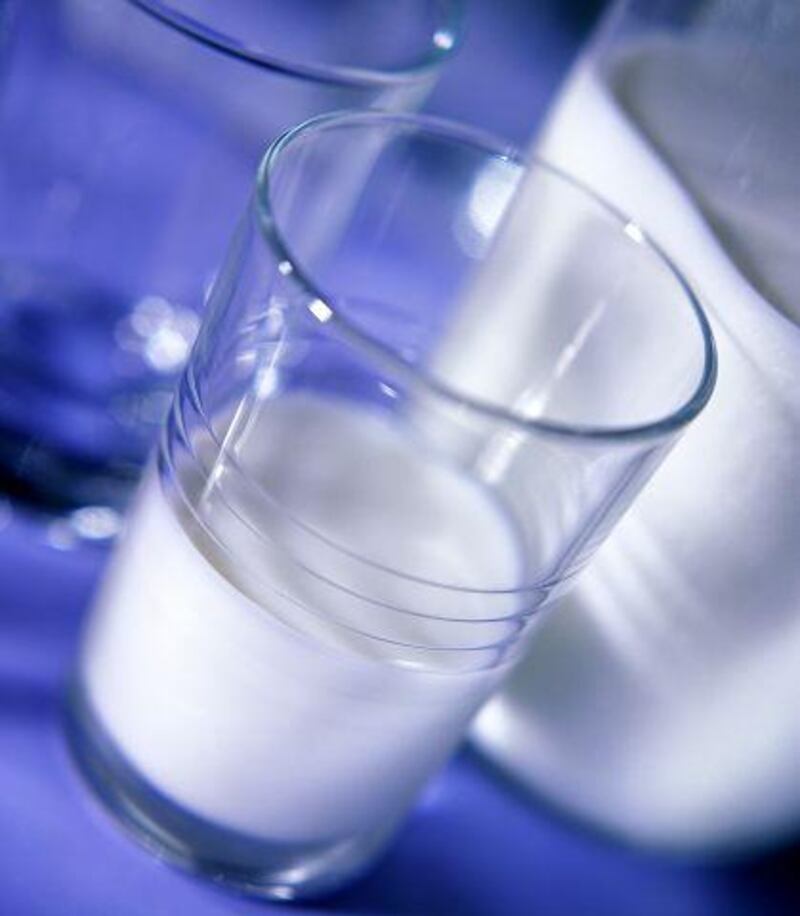What do you get if you cross a can of Coca-Cola and a cow? Fizzy milk. Unfortunately this isn't some kind of lame joke, because boffins at Coke's research centre in Atlanta, Georgia, have come up with a carbonated dairy drink that they're hoping to launch officially in the near future. The product is apparently a mixture of skimmed milk, sparkling water, fruit flavourings and cane sugar, and it will hit supermarket shelves, unchilled, in small aluminium bottles festooned with the catchy name Vio. Available in peach mango, berry, citrus and tropical colada flavours, the bubbly brew will contain almost as much sugar per bottle as a can of regular Coke. And according to Coca-Cola's advertising people, it tastes "like a birthday party for a polar bear".
"Pull the udder one" is probably what you're thinking, but Coke is serious. The drink is being developed as part of the company's Project Life initiative, which aims to explore a range of possible products involving milk-based refreshments. It's currently being test-marketed in stores and delis in New York, and is said to be proving quite popular. Of course, carbonated milk products are nothing new - Calpis Soda has long been a popular milk-based drink in Japan, and Milkis is a similar brand available in South Korea. What is surprising is Coca-Cola's enthusiasm to push fizzy milk in the West, where traditionally the product has tended to fall flat.
Yet, while it could reasonably be said that most of the population prefers the smooth texture and subtle flavour of a conventional glass of fresh milk, maybe it's just a generational thing. Perhaps Vio is being aimed at younger folk who have been brought up on the E! channel and iTunes and for whom normal, boring, real milk just isn't whiz-bangy enough. Of course, now it all makes sense - in a time when you can make a video of yourself doing something utterly vacuous on your mobile phone, upload it on YouTube and become famous overnight, only the effervescent excitement of a fizzy drink will do. So what's next - tingly tea and carbonated coffee? Perhaps, but in the meantime there's always Fizzy Fruit.
In an attempt to get kids to eat more healthy food, Fizzy Fruit was invented by using a process of carbonation involving dry ice to put zingy little bubbles into fresh fruit. Grapes, oranges, plums, mangoes - you name it, they can all be given the sparkly treatment. But while there may have been good intentions behind the original idea, what does a product like this do to children's perceptions of food? Will their palates be forever spoiled and their expectations so unrealistically altered that in later life such simple pleasures as real apples will be left to rot because they don't go fizz? In an age when people should be encouraged to get closer to the roots of locally produced, organic food, the process of carbonation can only serve to remove us from the realities of natural produce. But it could be much, much worse.
In the pantheon of food product ideas that should never have graduated from the back of the marketing man's cigarette packet, Cheestrings has got to be right up there. Not only do the concepts of cheese and string go together like Gordon Ramsay and tact, but the brand's mascot, Mr Strings, is so disturbingly annoying he should be strung up, along with the product development team who came up with this abomination. But whatever slow torture I'd reserve for that bunch, it's nothing compared to the sadistic torment I'd visit upon the creators of sliced jam. Jam, (or "jelly", as the Americans call it), traditionally comes in jars, is accessed by a knife or a spoon, and is spread by hand on to toast, cakes or scones as nature intended. Sliced jam, on the other hand, comes in rubbery individually wrapped layers rather like processed cheese, and is for inveterate idlers who can't be bothered to spread their own jam and, as such, have given up on life.
If you think that's bad (and it is, trust me), then it's nothing compared to the next ill-advised food product on my hit list: Batter Blaster. It sounds like something you might find in a Glaswegian chip shop, but it is in fact a ready-mixed pancake and waffle batter in an aerosol spray can. "Make a better breakfast faster - Batter Blaster" is the inexorably grating advertising jingle that encourages you to splurge the purulent yellow gunk into a hot pan for a wholesome morning meal. But that's all OK because it's organic, they say. Well, so is frog spawn, but I don't want to squirt it out of a pressurised canister into my frying pan for breakfast, thank you very much. Give me fizzy milk any morning of the week.





